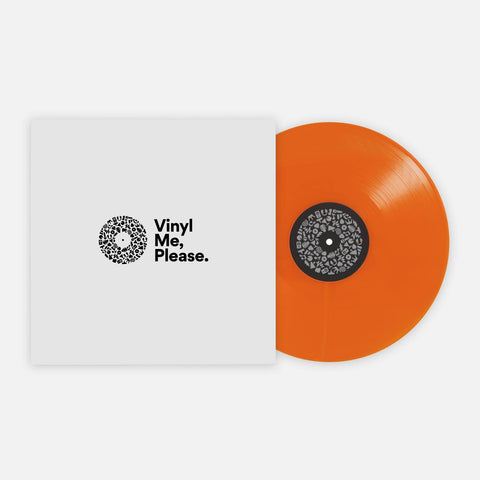Contrary to the rave reception, the forecast for a JAY-Z album in 2017 - his 13th solo effort and second delivered via cellular exclusivity - was understandably bleak. His prior effort, 2013’s Magna Carta Holy Grail, was marred by subpar performances over grandiose and progressive sonics, its Samsung-only context and Soundscan million-in-a-day debacle seemingly overshadowing the music itself. While JAY-Z remains on the title, 4:44 is 47-year-old S. Carter at the most revealing and intriguing he’s been in years. The album gathers its namesake from the hour when Shawn Carter, moved by the chopped soul of Dion “No I.D.” Wilson, rose from his slumber to write the title track, etching his apologies and many more revelations into stone for the world to hold. With No I.D. as the sole producer of the 36 minutes, this album is neither an annotated line-by-line response to Lemonade nor a clumsy ploy for relevance masked by brand loyalty. It’s the late-career moment that happens when a veteran turns away from the noise and returns to catharsis, reminding the audience why they revered them at all.
These No I.D. flips breathe their own life, the sample narrating every theme in an expensive, minimalist glory. Hearing Frank Ocean wax poetic about solipsism on “Caught Their Eyes” over the brightness of Nina Simone’s rendition of “Baltimore,” alongside Damian Marley’s gripping signature voice over timeless Sister Nancy flip on “Bam,” one’s easily transported into a New York summertime at the drop of a fitted. On the title track, Wilson chops Hannah Williams into a painful swell about never treating a lover right, and one can hear Hov’s flow decompose into a spoken word-esque rhythm, falling out of step and stripping his melodic instincts away to simmer in his own thoughts. In ten songs, the listener witnesses heartbreak, forgiveness, ego death, fatherhood, intergenerational trauma and charges for freedom of the mind and the wallet. Hov talks the billionaire talk with a dash of Black separatist, borderline supremacist logic: why didn’t he buy the building in DUMBO for that $2 million when it’s worth $25 million now? Who owns the liquor and who owns the label and how much will the Picasso be worth once Blue Ivy’s a teenager? Why is Kanye buggin’ out?
The loftiness of these charges feel much more pointed at a man worried about Black folks owning and controlling their destinies; while he’s still a billionaire who can drop his own albums on his own platform, it reeks not of condescension and everyday flex talk, but of motivation to leave something behind. When Hov’s not poking fun and disgust at his past - and our present, some artists trapped in the same industry practices - he’s wading in his own ego death, eager to shed the toxicity of the paranoia and bravado that put him in this seat. Records like “Moonlight” and “Bam” slip in this department, his generational aggravation reading more trite compared to what he did everywhere else on the album, but there’s far too many bright spots to make up for his reversions. We hear his mother Gloria Carter speaking of her coming out as a lesbian single mother, we hear Blue’s voice asking what a will is, we even hear Hov swallowing the thought of his children reading of his infidelities and deconstructing his spiritual war after reconciling with his grandfather, a man of god, molesting his own daughter.
In the MCHG era, the presentation surpassed the execution. We found a Hov that still had some singles in him, but sounded weathered and inching further past his prime than we’d ever visualized before, despite its inevitability. 4:44 is the antithesis that accomplishes the inverse: there’s no single for the radio, no other rap features, and we won’t remember the first-week numbers or the awkward rollout with a disappearing download link. This is Hov as the elder statesman he’s been for so long, shifting into a man with sage advice rather than an oldhead who’ll never sacrifice his seat for the youth to just be. It’s a soulful rap record in a Wild West mainstream climate that swears against it, a crown jewel left by a changed man with a seasoned vantage point who’s and more focused on leveraging his experiences to forgive himself and put the rest of the world on game. When we least expected Hov to return to us, he answered the call with a labor of love and without a fear in the world. While serving as a fitting final piece in the legacy - should he finally bow out now - 4:44 is a reassertion for why hip-hop is never too good to heed the lessons from its elders.
Michael Penn II (aka CRASHprez) is a rapper and a former VMP staff writer. He's known for his Twitter fingers.
Join the Club!
Join Now, Starting at $36Pages








